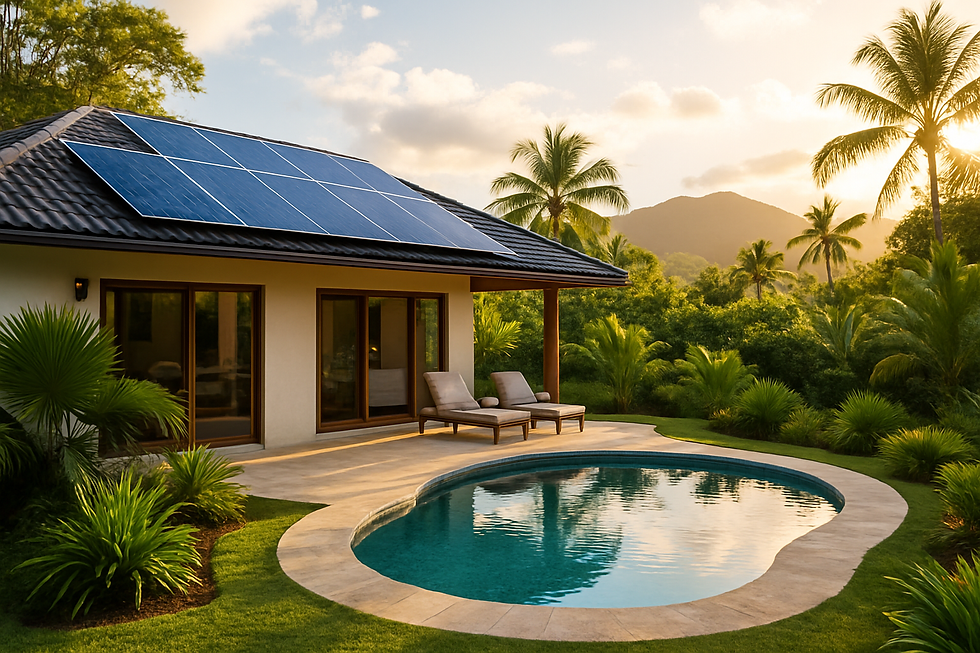7 Affordable Countries Where Americans Can Easily Buy Real Estate
- chinaschmitz
- Aug 1, 2024
- 3 min read

*By Kiri Blakeley*
With housing costs in the U.S. soaring and a contentious election on the horizon, many Americans are contemplating a move abroad. Immigration attorney Jean-Francois Harvey from Harvey Law Group notes that inquiries about relocating overseas spiked after the first debate between President Joe Biden and Republican nominee Donald Trump. People are increasingly looking for a "Plan B" due to concerns about political instability.
Relocating overseas can be more straightforward than you might think. Many countries not only welcome Americans but also offer much more affordable living costs. “I can get you a visa for Spain in a few weeks,” Harvey says, highlighting Spain as a country where real estate is cheaper and residency is more accessible compared to the U.S.
Golden Visas and Residency Options
Golden visas, ancestry, and various visa types—from digital nomad to long-term visitor—are ways Americans can gain legal entry into other countries. Kathleen Peddicord, CEO and founder of Live and Invest Overseas, mentions that many places around the world offer prime coastal and city properties for much less than comparable homes in the U.S. “A small or modest budget can afford you a really comfortable home in many places overseas,” Peddicord says.
Countries typically look for proof of reliable passive income, such as a pension, dividends, royalties, rental income, or Social Security payments, to ensure you can cover your expenses without straining the local job market. Investing in the country—either through a fund or by maintaining a certain amount in a local bank—is another pathway to residency, although passive income is usually preferred.
Top Countries for Affordable Real Estate
Panama
Panama is a rising star for real estate investors and those seeking a lifestyle change. Harvey points out its increasing popularity among Americans, easy flight connections, pristine beaches, and a large English-speaking expat community. You can visit without a visa and only need to show $1,000 a month in income for residency.
Spain
Spain offers an easy visa process, temperate weather, a low cost of living, and stunning beaches. The Non-Lucrative Visa (NLV) is a preferred option, requiring proof of about $2,600 a month in income, health insurance, no criminal record, and proof of residence.
Hungary
Hungary, known for its beautiful architecture and vibrant culture in Budapest, recently reinstated its attractive golden visa program. A $270,000 real estate fund investment grants you work and residence rights for 10 years, along with temporary residence in any Schengen Zone country.
France
France offers excellent deals outside of Paris. While the capital city remains a prime real estate investment, the countryside provides more affordable options. Foreigners are eligible for mortgages at low rates, and the Long Stay Visa program has straightforward requirements.
Belize
Belize, famous for its beaches and barrier reef, is a great option with a low cost of living and tax benefits. The Corozal District, near Mexico, offers homes priced between $100,000 to $200,000. The Qualified Retirement Program allows anyone over 35 with a $24,000 annual income to settle long-term.
Thailand
Thailand, particularly Phuket, is noted for its natural beauty and resilient infrastructure. With no property tax and an exceptional quality of life, Thailand attracts many expats. While foreigners cannot own land, they can own condos or portable houses.
Philippines
The Philippines offers stable government, cheap housing, and a large American expat community. The Special Resident Retiree’s Visa requires low income for residency, and real estate investment requirements are minimal. Foreigners can own condos, apartments, or buildings, but not the land.
Relocating overseas offers many opportunities for Americans to find affordable real estate and a high quality of life. If you're considering a move, these countries provide diverse and attractive options.
---
*Adapted from an article by Kiri Blakeley originally published on July 28, 2024.*




Comments